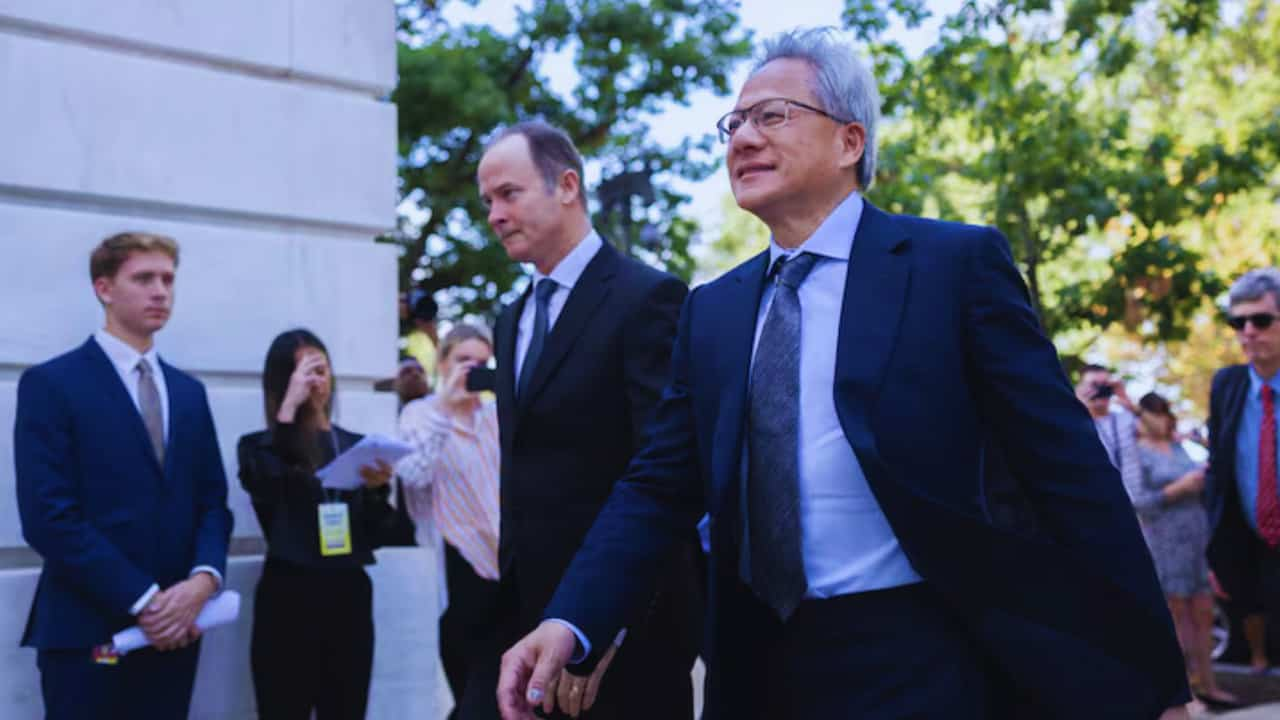Supreme Court Skeptical of Nvidia’s Bid to Dismiss $4.6 Trillion Chipmaker’s Crypto-Related Fraud Case
In a closely watched securities fraud case that could reshape how investors bring lawsuits against major corporations, the Supreme Court on Wednesday appeared unconvinced by Nvidia’s attempts to dismiss a shareholder lawsuit over alleged cryptocurrency-related misrepresentations.
Jensen Huang, CEO of the world’s most valuable technology company, faces allegations that Nvidia concealed its heavy reliance on cryptocurrency mining chip sales before a market crash sent the company’s stock tumbling in 2018. While Nvidia denies any wrongdoing, it previously paid $5.5 million to settle similar charges with the Securities and Exchange Commission in 2022.
The case hinges on technical requirements set by the 1995 Private Securities Litigation Reform Act (PSLRA), which aims to prevent baseless lawsuits while protecting valid investor claims.
Both liberal and conservative justices expressed doubts about Nvidia’s arguments during oral arguments, with Justice Elena Kagan notably questioning why the Court had even taken the case.
“It becomes less and less clear why we took this case… and why you should win it,” Kagan told Nvidia’s attorney Neal Katyal.
The lawsuit claims that in 2017 and 2018, Nvidia downplayed its exposure to the volatile cryptocurrency mining market, instead attributing strong chip sales to gaming demand.
When cryptocurrency prices crashed, Nvidia’s stock fell sharply. One investment bank later estimated the company had earned over $1 billion more in mining-related revenue than disclosed.
Katyal argued that the shareholders’ evidence, based largely on expert analysis rather than internal company documents, fails to meet the PSLRA’s strict requirements. He warned that allowing the case to proceed would create a “road map” for questionable securities fraud claims whenever a company’s stock drops.
“All they have to do is find an expert with numbers that contradict a company’s public statements, then allege the company keeps records that executives look at,” Katyal argued.
However, Deepak Gupta, representing the shareholders, countered that their complaint contains ample detail and meets legal standards. The case also includes statements from former Nvidia employees about internal sales reports.
Justice Ketanji Brown Jackson noted that Nvidia’s position could place an impossible burden on investors, requiring them to produce internal documents they can only obtain through legal discovery.
The case marks the second major tech industry securities fraud dispute before the Court this term. Last week, the justices heard arguments in a similar case involving Meta’s Facebook and its handling of the Cambridge Analytica data breach.
Chief Justice John Roberts expressed frustration with both sides’ extreme stances and suggested the need for a middle ground. “How do you identify the ideal balance?” he inquired.
The timing of these cases is particularly significant given Nvidia’s meteoric rise. As Justice Kagan observed, “Nvidia is now the company that’s sending the stock market into the stratosphere,” thanks to booming artificial intelligence chip demand that has pushed its value to $4.6 trillion.
The Court’s decision, expected by summer 2024, could significantly impact how shareholders pursue securities fraud cases against major corporations. A ruling favoring Nvidia could make it harder for investors to bring such lawsuits, while a decision supporting the shareholders could maintain or expand their ability to challenge corporate disclosures in court.
The case highlights ongoing tensions between protecting investors from corporate fraud and shielding companies from costly, frivolous litigation. As Gupta argued, “Congress recognized that there is a value to having private securities litigation as a supplement to public enforcement to ensure that our capital markets are the best in the world.”
